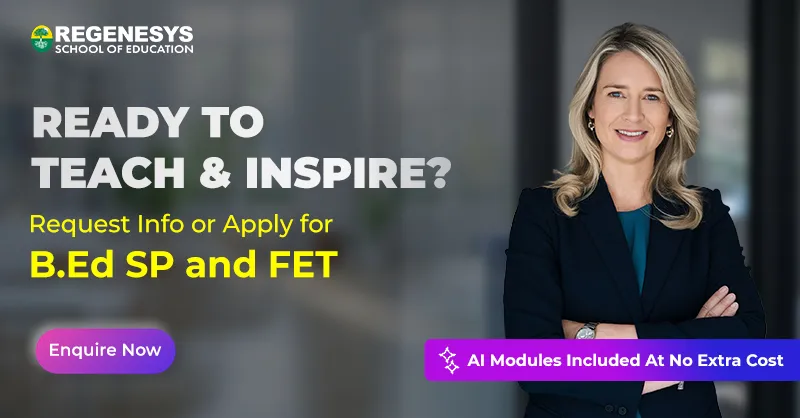Teaching is one of the most important professions, as it lays the foundation for future generations. However, for many students, the cost of higher education can be a barrier.
Therefore, to encourage more students to enrol in a teaching or Bachelor of Education programme, the government offers various bursaries. These bursaries can cover tuition and other education-related expenses.
In this article, we will explore the types of teaching bursaries available for the 2026 academic year and what they offer.
Table of Contents
Teaching Bursaries for 2026 Overview
South Africa is experiencing a shortage of qualified teachers across various levels of the schooling system. To promote learning and ongoing entry into the profession, the South African government aims to support students through various bursaries. These field-of-study-specific bursaries are for students who enrol in accredited Bachelor of Education programmes.
These teaching bursaries for 2026 can be awarded to students from a particular province or to those enrolling in public universities in South Africa. Some bursaries can be subject-specific, such as STEM bursaries.
Students interested in enrolling in the Bachelor of Education programme for the 2026 intake can search and apply for bursaries online.
Also, read on Reaching New Heights with Accounting Bursaries here!
Types of Teaching Bursaries Available
Bursaries are non-repayable funds awarded to students who demonstrate financial need or exceptional academic merit. When students search for teaching bursaries for 2026 in South Africa, they will find three main types of bursaries. These are based on the source of the funding.
1. Government Bursaries
These are bursaries provided by the South African government and can be offered by the central or provincial government. These awards are typically based on financial need and academic standing.
2. Private Bursaries
Corporations award these bursaries as part of their community upliftment efforts. To be eligible for many of these teaching bursaries for 2026, the applicant must be a resident of the community surrounding the corporation.
3. Non-Profit Bursaries
Non-government organisations and trusts award these bursaries to help increase the intake in the teaching profession. These bursaries can sometimes encourage students to contribute to community projects.
The applicantRead on: What is a Bursary? Know All About Application Process here!

Eligibility for a Teaching Bursary
While there are several teaching bursaries available in South Africa, each only awards to a limited number of students each year. Specific eligibility criteria vary by bursary; however, some are common across all.
Listed below are some standard eligibility criteria to apply to teaching bursaries for 2026:
- Applicant must be a South African citizen (some bursaries accept permanent residents)
- You must display a love of teaching and working with children
- Should be in grade 12 or should have passed Matric
- Must have applied or should have been accepted to a recognised higher education institution
- Must display strong academic standing
Motivational Letter for Teaching Bursary
A motivational letter is required to apply for most bursaries in South Africa. This letter is an opportunity for the applicant to stress their interest in teaching and how the bursary will help them achieve their goals.
A well-structured and personalised letter clearly illustrates the thought process behind wanting to become a teacher. It should also highlight any achievements or extracurricular activities the student has participated in.
Listed below are some tips students can follow for a successful motivational letter:
- Keep the tone professional
- Begin with a proper introduction
- Mention your previous academic and relevant extracurricular achievements
- Stress on the financial need for the bursary
- Clearly outline your future plans
- Conclude professionally while thanking the bursary committee
Fill outRead on How to Write A Motivational Letter For A Bursary: Tips and Examples here!

How to Apply for a Teaching Bursary?
Bursaries are highly prestigious awards, and therefore special attention should be paid to the application. Students need to begin searching for bursaries when they submit their university applications.
Students interested in teaching bursaries for 2026 can follow these steps:
- Search for teaching bursaries: Students should search for different types of bursaries available.
- Make a list: The best way to keep track is to create a list of all bursaries that students qualify for and their submission deadlines.
- Collect documents: Before working on the application, students must ensure they have scanned, updated, and certified copies of all required documents.
- Fill the application form: Fill the application form for each of the teaching bursaries that you are eligible for.
- Submit the application: Proofread it and ensure all documents are attached before you submit it for approval.
Find out the Example of Bursary Application Letter: Step-by-Step Guide
Top Teaching Bursaries in South Africa
There are various bursaries available to South Africa for qualified students in need of financial aid. Students need to research each bursary individually before submitting their application form.
Listed below are some of the top teaching bursaries in South Africa:
- SACEE Norah Taylor Bursary
- Cape Winelands District Municipality Mayoral Bursary
- Funza Lushaka Bursary
- South African Astronomical Observatory (SAAO)
- IDB Education Trust Bursary Loan
- Jakes Gerwel Fellowship Bursary
- JB Marks Education Trust Fund Bursary
- North West Provincial Government Bursaries
- Northern Cape Provincial Government Bursary
- NUMSA Bursary
Also, read on Future-Proof Your Education with Honours Bursaries here!

Explore Our Other Programmes
Conclusion
Teaching bursaries for 2026 can reduce the cost of enrolling in an accredited Bachelor of Education programme. The bursaries are non-repayable rewards and offer various levels of coverage.
Students are encouraged to begin their bursary application process early. They should also keep a checklist to track applications, documents, and deadlines. It is important to personalise each bursary application to stand out among the many applicants.
Visit the Regenesys Education website to explore our accredited Bachelor of Education programme. We also offer various student funding options, including flexible payment plans to help ease the cost of pursuing this degree.
FAQs
Do I need to repay the teaching bursary if I complete my teaching service obligation?
Bursaries are awards and do not need to be repaid. However, successful applicants must fulfil the work commitments required from the bursary.
Can I get other funding in addition to a teaching bursary?
Some bursaries provide additional funding to help students pay toward the cost of completing the degree. However, it is best to check each shortlisted bursary individually.
Are there many available bursaries for teaching?
While there are several bursaries available, each only rewards to a limited number of applicants.
Is a motivational letter required for a bursary?
Most bursaries require applicants to submit a motivational letter to better understand their interests and goals.
Are there teaching bursaries for private institutions in South Africa?
Yes, bursaries for education are available to students applying to a Bachelor of Education program at a private institution.







